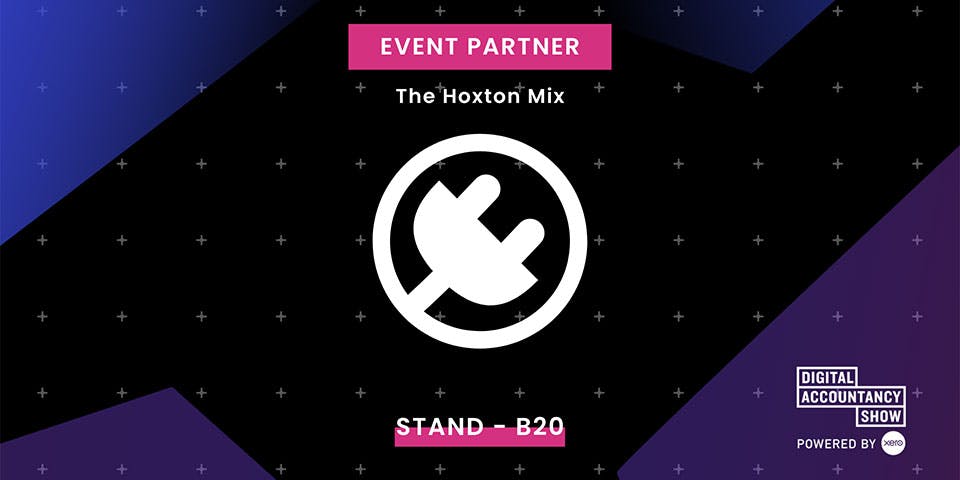13 January, 2025
How to Start a Successful Candle Business in the UK
Table of Contents
Do you love making candles in your spare time? Perhaps you frequently give them as gifts to your loved ones, or maybe you’ve even sold some of them at craft fairs.
If so, now is a great time to turn that hobby into something more official. Here in the UK we’re obsessed with scented candles, with Brits spending over £400 million on them every year—and this figure is set to increase. The candle market is expected to record a CAGR of 5.2% from 2024 to 2033, and there’s no reason this won’t be reflected in the UK market too.
However, just because you’re great at making candles that your friends and family love, you might be overwhelmed by the idea of launching an actual business—but although there’s a lot of hard work involved, it might not be as out of reach as you think.
Let’s take a look at how to start a successful candle business in the UK.
Start by researching the candle market
The candle industry might be booming in the UK, but that doesn’t mean you shouldn’t start off by conducting some candle business market research.
The UK is a large importer of candles which demonstrates the demand that might not be satisfied by British manufacturers, but if you’re planning on selling products locally you need to understand how much demand is in your town or area. You might produce the most beautifully scented candles in the world, but if you live in a small village in a rural area you might have to travel miles to access a large enough market, and things like high travel costs will eat into your profit margins.
You should also conduct competitor research in your local area. How many people are already selling homemade candles? What types of candles are they selling and how successful are they? Understanding what other sellers are doing will help you to figure out your own unique selling point, and suggest whether or not your business can be successful for the long term.
Choosing Your Candle Type
Your market research might help to inform the types of candles you want to create. Maybe you’ll discover that there are few competitors selling luxury candles, or that there aren’t any businesses selling a specific type of candle. This might influence the materials you want to use for your products.
Your budget will also play a part in this decision, with some waxes costing more than others.
Let’s take a look at four popular candle types in more detail: beeswax, soy wax, paraffin wax and wood wick.
Beeswax
Beeswax has been used to create candles since Roman times, and it’s a perfect candle material if you’re looking to create eco-friendly products.
A natural byproduct of beekeeping, beeswax is also biodegradable, while it’s also among the cleanest and longest-burning wax available.
However, the benefits of beeswax go beyond sustainability, and they also produce a bright, warm-toned flame that doesn’t drip too much or give off any smoke.
Soy wax
Like beeswax, soy wax candles don’t contain any artificial materials, and they offer a slow and clean burn. Soy candles also produce a bright, cool-toned flame that emits an almost fluorescent glow.
Made from soybean oil, a vegetable oil that comes from soybeans, you’d be forgiven for thinking that this was another eco-friendly option, but the growth of the soybean market has been linked to significant deforestation in South America.
Paraffin wax
Parrafin wax is the easiest to find and least expensive to buy, which could make it a good option when you’re first getting started. However, paraffin wax is also the ‘dirtiest’ option, producing soot when burned. It’s also not a particularly healthy option.
With this in mind, if you want to position yourself as a creator of luxury candles you should consider beeswax or soy wax—despite the higher cost.
Wood wick
Known for their signature crackling sound, wood wick candles have grown increasingly popular in the UK.
Wood wick candles are typically wider than regular cotton wick products, which means you get a longer and more even burn. What’s more, wood wicks burn much more cleanly than cotton ones, particularly if they’re trimmed after each use.
Note that wood wick candles can be made with different types of wax, but the type of wax you use will determine the type of wood wick you should use. For example, flat wood wicks will work best with thinner waxes, such as soy wax, while for beeswax candles you’ll need to consider a booster or spiral wood wick.
Homemade or resell?
If you don’t have the initial capital required to start a business selling homemade candles you might consider buying them premade for resale. There are a number of affiliate programmes available that allow you to sell white-labelled products under your own brand name, taking a cut of any sales you make.
However, although it’s easier to get started as a reseller than making your own products, you’re not necessarily going to stand out in the market when selling candles other people are selling too.
Developing your Brand Identity
To start a candle business successfully you need to do more than create great products—you need to develop a compelling brand, too.
Ask yourself the following questions to help you get started:
- What’s your brand story? This encompasses the overall vision of your business, including why you’re starting the business and what keeps you motivated to grow.
- Who’s your target market? Are you planning to only sell locally, or do you want to ship your products around the country? Your price point will also play a role in defining your target market.
- Who’s your ideal customer? This is related to your target market, but more specific. Your ideal customer, or buyer persona, will define exactly what type of people you expect to buy your candles: are they men or women? Millennials or Baby Boomers? Do they have plenty of disposable income, or are they on a budget? Creating a clear idea of your perfect customer will allow you to build an effective brand identity.
- What makes your candles different? This goes back to your competitor research. Your candles need to be differentiated from the rest of the market, but this also needs to be communicated by your brand. Are your candles eco-friendly? Perhaps they have particularly unique scents. Potential customers need to be able to recognise your business’s Unique Selling Points (USPs) in your branding.
Once you’ve clearly defined and developed a brand identity, you’ll find that many of the other decisions you have to make about your products, such as the materials to use and packaging design, become much easier—you simply have to refer back to your brand values and overall mission.
Typical set up costs
There are always set up costs associated with any new business, and understanding how much it costs to start a business is really important before getting started. Fortunately, the initial investment required for starting a candle business is relatively low.
These costs are easier to predict if you’re planning to resell, but there’s more to consider if you want to sell homemade candles.
Time will also be a big factor, and using digital products and services to help you be more efficient in setting up and managing your business will be crucial - for example our virtual office services, and using accountancy software, and CRM systems to manage your customer base.
Equipment
First of all, you’re going to need to invest in some candle making equipment so you can actually make your products.
You can buy bundled candle making kits, but it might be more economical to purchase what you need individually, so do some shopping around first. The key candle making equipment you’ll need includes:
- Wax pouring jug - ~£15-20
- Wax melting pot - ~£10
- Wick centring tool - ~£5-10
- Candle making thermometer - £5
- Wax stirring spoon - ~£3
Materials and stock
These are the recurring costs you’ll need to cover, such as wax, essential oils, wicks, containers and packaging.
The material costs will depend on the quality of candle you want to sell. For example, paraffin candles are the cheapest to make, but you won’t be able to sell them at a higher price point.
Whichever materials you choose, you’ll need to try and keep costs down wherever possible, as these eat into your profits. Buy them in bulk and shop around for the best price, and plan for your costs to be 30-40% of your sale price.
Advertising and marketing
Once you’re up and running you need to attract potential customers, and this will require some investment in advertising and marketing.
We’ll go into marketing your candle selling business in more detail shortly, but in general you’ll want to aim to spend 5-10% of your turnover on marketing, and preferably closer to 10% if you want to grow faster.
Running costs
These are the day-to-day costs of running your business, including overheads for rented commercial space, or increased utility bills if you’re working out of your own home. The costs of selling your candles at events should also be included within these running costs.
Legal requirements for candle selling
To start a candle business in the UK you’ll need to register with the local authority and comply with the relevant health and safety regulations. Although most consumer protection laws aren’t aimed at private individuals doing things as a hobby, as soon as you start operating as a business and repeatedly producing goods for sale to consumers, you will be classed as acting in the course of a trade.
There are also some legal requirements associated with certain fragrances and ingredients, specifically insect-repellant candles.
Insect repellent products are controlled by the Health & Safety Executive (HSE), and they must be registered with the HSE. This is about protecting consumers from businesses making unsubstantiated claims, rather than a safety issue, and if you cannot prove that your candles have an active ability to repel insects—and it’s not on the official register—you cannot claim that they do.
Even if you use depictions of insects on your packaging is likely to be considered misleading, so you must be careful if you’re selling citrus-scented candles that you don’t fall foul of the legislation.
We’d recommend seeking the advive of a legal professional when starting any new business. Registered customers of The Hoxton Mix can get £100 off a SeedLegal subscription of one-time purchase here.
Register as self-employed with HMRC
Once you start selling your homemade candles, even if you’re starting a business while working full-time, you’ll need to register for self-assessment with HMRC. You can do this at any time, but you’ll need to register by 5th October if you earned any income in the previous tax year.
For example, if you make any sales between 6th April 2024 and 5th April 2025, you’ll need to register for self-assessment by 5th October 2025 ahead of filing your first tax return by 31st January 2026.
What insurance do you need?
There’s no specific candle business insurance required in order to sell homemade candles in the UK.
However, we’d recommend taking out a public liability insurance policy to cover any potential damages to people or property caused by your products
Setting Up an Online Store
You don’t need to create your own website to start selling your candles online as there are many platforms that are designed for craft ecommerce.
For example, Etsy dominates this market and is the go-to website for people looking for handmade products and gifts, while Amazon and eBay are also popular options with makers looking to grow their customer reach.
If you’re operating out of your own home you might be hesitant to use your private residential address when setting yourself up on these platforms. You might be concerned about customers potentially turning up at your home, or that you’ll miss important business correspondence.
You can avoid this situation by registering for a UK virtual address for Amazon, Etsy or eBay stores with a company like The Hoxton Mix. You’ll be able to use this virtual address as your public-facing business address, ensuring you can receive all of your mail while retaining your privacy.
Marketing and Selling Your Candles
Getting to grips with the logistics of how to start a small business at home in the UK selling candles is relatively simple compared to being able to generate interest in your products and convert that into sales.
Utilise social media and product photography
Social media is one of your best opportunities for reaching potential customers and boosting brand visibility and sales.
High-quality, professional photography is an essential element of this, and platforms like Instagram and Pinterest are ideal for sharing product photos.
You can also use social media to highlight your brand’s story, including the USPs of your products, for example eco-friendly qualities or unique scents. Consistent branding, paired with great visual content, will build trust and elevate your brand in what is a very competitive market.
Secure a spot at craft fairs
Local craft fairs and ‘makers markets’ represent an important opportunity for candle sellers. Not only will you get in front of your local target market, but you can also network with other local makers and small businesses, picking up tips on how to grow your small business.
Search for local craft fairs on social media and other local resources, and create a list of options - using sites such as www.localmakers.uk. Then, reach out to the organisers and find out what you have to do to get a spot.
Get support from family and friends
Your local area will be a key market when you first set up your candle making business, and you can leverage your family and friends to boost word of mouth promotion and get up and running quickly. Candles are repeat purchase products, and your existing network can be a great starting point for building your customer base.
Packaging and delivery
Attracting customers to your online shop and securing a sale isn’t the final step—you also need to make sure you package and ship your products to customers safely and securely.
Your choice of packaging has two purposes:
- Confirming your products as high quality and reinforcing your branding
- Ensuring your candles arrive at their destination in a good condition
Achieving the first objective will require custom boxes that are designed to match the size and shape of your candles, and that are adorned with your brand. Even if you’re producing candles as a side hustle rather than your full-time job, if they arrive in plain boxes that aren’t the right size your customers aren’t going to view them as high quality products. It will also mean people won’t want to buy them as gifts for friends and family.
Protecting your candles during transit requires a lot of consideration too. This will require:
- Additional boxes to place your branded packaging into
- Packing ‘peanuts’, styrofoam inserts or bubble wrap to protect the candles during transit by keeping the primary box securely in place
- Packaging tape to ensure the boxes remain closed during transit
Additional packaging options might include branded external boxes or labels for those boxes, cards to include with your shipments for thank you messages to customers, or leaflets to provide an additional marketing message.
You’ll also have to think about whether you want to handle all of the shipping yourself or work with a third-party courier service like Gophr. As you grow your business, the harder it will be to manage this without any support.
Conclusion
Starting your own business can be a challenge, and will require a lot of hard work, but with the right support and by following the advice we’ve summarised in this article, you can set yourself up for success. Leveraging digital products and virtual office services will help you enormously.
So, if you’re looking to start a candle business in the UK and want to find out more about how we can help, take a look at our virtual office offering, with registration and mail handling available from £17/month.
FAQ
Is starting a candle business profitable in the UK?
Yes, starting a candle business in the UK can be highly profitable. The demand for handmade, eco-friendly, and luxury candles continues to grow. By focusing on creating high-quality products, building a unique brand, and targeting the right audience, you can develop a successful candle business with significant potential for growth.
What are the first steps to starting a candle business in the UK?
To start a candle business in the UK, research the market to identify your target audience and competition. Create a unique product line with appealing scents and designs. Register your business with HMRC for compliance. Source quality materials like wax, wicks, and fragrances, and develop a brand identity and marketing strategy. These steps establish a solid foundation for launching your business.
Do I need a license to sell candles in the UK
You do not need a specific license to sell candles in the UK. However, you must comply with UK trading standards and product safety regulations. This includes adhering to Classification, Labelling, and Packaging (CLP) requirements, ensuring that your products are correctly labeled with safety warnings and ingredient details.
What is CLP compliance for candle businesses in the UK?
CLP compliance involves providing accurate labelling for your candles to ensure customer safety. Your labels should include information about potential hazards, ingredients, and safe usage instructions. Meeting CLP requirements is a legal obligation for selling candles in the UK and helps build customer trust.
How much does it cost to start a candle business in the UK?
The cost of starting a candle business in the UK varies depending on the scale of your operations. For a small-scale business, the initial investment typically ranges from £500 to £1,000. This includes costs for equipment such as melting pots and molds, materials like wax and fragrances, branding, packaging, and setting up an online store or website.
Where can I sell my candles in the UK?
There are multiple avenues to sell your candles in the UK. Popular options include online marketplaces such as Etsy, Amazon, and eBay, as well as your e-commerce website. You can also sell your candles at local craft fairs and markets or partner with boutique stores and gift shops.
What are the most popular candle types to sell in the UK?
Some of the most in-demand candle types in the UK include soy candles, which are eco-friendly and long-lasting, and scented candles in fragrances such as lavender and vanilla. Luxury candles with unique packaging and aromatherapy with essential oils attract significant customer interest.
How can I market my candle business effectively?
Market your candle business by using social media like Instagram and Pinterest to showcase products. Offer promotions to attract customers and collaborate with lifestyle influencers. Additionally, create blog content about candle care, benefits, and trends to drive organic traffic to your website.
Do I need insurance for my candle business in the UK?
Insurance for your candle business is recommended. Product liability insurance covers claims related to your candles, while public liability insurance protects you at events. Business insurance also safeguards your equipment and stock.
How can I ensure my candles stand out in the UK market?
Make your candles stand out by focusing on unique designs, enticing scents, and sustainable packaging. Highlight your brand story to connect personally with customers. Stay updated on market trends and provide personalised services like custom candles for events to gain a competitive edge.
Hand-picked related articles
Virtual Office Plans
Cheap London business address with 10 Minute Setup + NO Postage Fees!
Not a Virtual Office customer? Why not sign-up today.
from 49p per day + VAT
Virtual Office London
Get a Prime London business address
10 Minute Setup + NO Postage Fees!

Our meeting rooms are located at our Paul Street office,
and it’s just a few minutes walk from Old Street tube station…
Our Address
3rd Floor, 86-90 Paul Street,London,EC2A 4NEDirections
Opening hours
Monday - Friday 9am - 18.00pm







![Best Registered Office Address Provider in the UK [2022 Ranking]](https://images.prismic.io/hoxton-mix/MzRjMzJmMmUtYzJmNi00NDhlLTg2YzctZjc0M2ViNGMzOGU5_201b0b3d-8f63-4205-860f-8d0bf1fc4553_best-registered-office-address-provider-in-the-uk--2022-ranking-list.jpg?auto=compress%25format&rect=120%250%25720%25480&w=960&h=640)